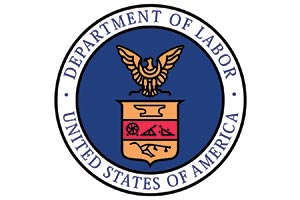Federal Overtime Rule Faces Legal Battle

This story appears in the Oct. 3 print edition of Transport Topics.
A U.S. Department of Labor rule that would add 4 million workers to the national pool of employees eligible for overtime bonus pay Dec. 1 is facing two legal challenges in a U.S. District Court in Sherman, Texas.
The two coalitions that are asking Judge Amos Mazzant III to vacate and set aside the final rule are 58 trade groups representing businesses and 21 governors or state attorneys general. Both cases were filed Sept. 20.
The business groups called the rule “arbitrary, capricious and otherwise contrary to law.”
Attorneys for the groups told the judge, an appointee of President Obama, that the Labor Department exceeded its statutory authority and violated the Administrative Procedure Act.
The complaint by the states uses much of the same reasoning as the business groups but adds a constitutional dimension, saying the rule violates the 10th Amendment in the Bill of Rights:
“The powers not delegated to the United States by the Constitution, nor prohibited by it to the States, are reserved to the States respectively, or to the people.”
The regulation was rolled out by Obama and Labor Secretary Thomas Perez on May 18. The rule would double the ceiling for annual salaries eligible for overtime pay under the Fair Labor Standards Act to $47,476 from the current level of $23,660, an increase of 100.7%.
The salary ceiling is often called the “white-collar exemption,” as it covers administrative, executive and professional workers. Employees making less than the ceiling must be paid time-and-a-half for time worked beyond 40 hours per week.
The rule affects all businesses — and state governments — and has caught the attention of trucking executives.
“This is a huge concern. We expressed our concerns with our entire federal delegation in Washington two weeks ago,” said Rick Todd, president of the South Carolina Trucking Association.
“The revision on the salary prerequisite represents a huge all-at-once increase and would have been less impactful if increased over time. It seems politically timed,” Todd said.
The trucking company employees most likely to be affected are dispatchers and other back-office personnel, said Richard Pianka, deputy general counsel of American Trucking Associations. Drivers and maintenance technicians are exempt from the rule, he said, because “they have a statutory exemption as safety-regulated workers covered by the Department of Transportation.”
Garner Trucking is planning to implement the new rule, CEO Sherri Garner Brumbaugh said. For her Findlay, Ohio, truckload carrier, Brumbaugh said it will affect her dispatchers and employees who are on call.
Brumbaugh said she is working on her 2017 budget under the assumption the rule will start as planned.
Historically, the company has paid an on-call stipend, but if the rule is enacted, she said the company will either have to bump up salaries beyond the new ceiling or convert employees to hourly wages and track them closely.
“I’m going to hire less people. There are only so many ways to slice the pie in terms of growth for support staff,” Brumbaugh said.
Although the start date for the rule is less than two months away, the two cases are not seeking full trials before the court.
The business groups want the judge to vacate and set aside the rule. The states ask for a declaratory judgment to do the same.
The court’s docket said Perez, the named defendant, was served Sept. 22 and the Labor Department has until Nov. 21 to respond.
Pianka, who works on litigation for ATA, said any order by a district court judge could be appealed, in this case, to the 5th U.S. Circuit Court of Appeals in New Orleans.
The Labor Department said the new ceiling is equal to the 40th percentile level for salaried employees in Census Bureau regions with the lowest wages, in this case, 16 Southern states and the District of Columbia. The rule would revise the ceiling every three years, based on Census Bureau data.
The Arkansas Trucking Association briefed its members on the rule, President Shannon Newton said. The overtime rule became the first agenda item on her group’s new accounting and finance council.
“When initially announced, we had multiple inquiries. The way it’s written has impacts on every business — even our association,” Newtown said, noting the time association employees spend monitoring social media posts must be tracked as well as time spent by employees on events that occur beyond the association’s normal business hours.


